
Bis 2100 werden 85 % aller Menschen in Städten und ihrer Umgebung leben. Höchste Zeit also, dass wir schon heute damit anfangen, unsere urbanen Räume zukunftsfähig zu gestalten. Dass das mit Cradle to Cradle möglich ist, zeigen viele Beispiele aus der Praxis. Am 12. Mai wollen wir mit Euch über solche Best Practice Beispiele diskutieren. Vom kommunalen Bau, über Entsorgung und Rohstoffrückgewinnung bis zu Beschaffung, Haustierhaltung und Energieversorgung: Viele Bereiche spielen eine Rolle, wenn wir zirkuläre Kommunen nach Cradle to Cradle gestalten wollen.
Die Teilnahme an der Veranstaltung ist vor Ort im C2C LAB (begrenzt) und digital möglich. Es wird außerdem eine Übersetzung Deutsch-Englisch angeboten.
Herzlich Willkommen – wir laden Sie auf ein heißes oder kaltes Getränk ein. Kommen Sie an & kommen Sie ins Gespräch.
Die Moderation eröffnet die Veranstaltung mit einem Einblick in das Tagesprogram und den zentralen Fragen des Summits.
Wo steht das Bildungssystem in der Umsetzung einer Bildung für nachhaltige Entwicklung? Was brauchen Lehrende und Lernende, um einen echten Wandel zu leben und welches Potenzial hat Cradle to Cradle in dieser Transformation?
Bildung als Schlüssel für eine Circular Society: Praxisakteur*innen, Zivilgesellschaft und Politik diskutieren, wo das Bildungssystem steht, was es für eine grundlegende Veränderung braucht und welche Schritte wir gehen können.
Der Bildungsansatz von C2C NGO wird vorgestellt – vom Einstieg über ein positives Menschenbild bis zum Produktdesign. Hier gibt es einen Überblick des Material- und Vernetzungsangebots für Bildungseinrichtungen.
Senior Bildungsreferentin, Cradle to Cradle NGO
Bildungsreferentin, Cradle to Cradle NGO
Ein Überblick der Workshops, die am Nachmittag parallel stattfinden – von einer digitalen Lernreise zum Thema Kreislaufwirtschaft bis hin zur kreislauffähigen Umgestaltung eines Lernorts gibt es eine Bandbreite an spannenden Inhalten zur Auswahl.
In der Pause können leckere Speisen vom Vood Mobil auf dem Gelände geholt werden.
Die Workshops werden zeitnah mit Kurzbeschreibungen hier ergänzt. In der Anmeldemaske sind die übergeordneten Themen der Workshops als Orientierung aufgeführt.
Nehmen Sie sich Zeit für eine kleine Stärkung, Vernetzung und, um die Ergebnisse anderer Workshops zu erkunden. Weitere Materialangebote als Inspiration für die eigene Bildungsarbeit gibt es im Foyer.
Wir schauen in diesem Podiumsgespräch darauf, was Circular Economy und C2C mit zukünftigen Aus- und Weiterbildungswegen für junge Menschen zu tun hat, wie sie Gestaltungskompetenzen aufbauen und mit Ungewissheiten in einer sich wandelnden Berufswelt umgehen können.
Wir betrachten in diesem Podiumsgespräch Lernorte aus der C2C-Perspektive und stellen Fragen rund um eine pädagogische Architektur. Dabei geht es vor allem darum, wie bestehende und zukünftige Gebäude von Bildungseinrichtungen in Kreisläufen gedacht, geplant und konstruiert werden können.
Die Erkenntnisse des Tages werden in einem Publikumsgespräch zusammengetragen und die Visionen für C2C im Bildungssystem auf den Punkt gebracht.
Geschäftsführende Vorständin Cradle to Cradle NGO
Teil der Geschäftsleitung, Cradle to Cradle NGO
Darf es noch ein Getränk sein? Vor der Abreise gibt es noch die Möglichkeit zum Vernetzen.
Schön, dass Sie dabei waren & bis zum nächsten Mal!
ENGLISH
By 2100, 85% of all people will live in cities and their urban surroundings. Therefore, it is time that we start today to make our urban spaces fit for the future. Many examples show that this is possible with Cradle to Cradle. On May 12, we want to discuss some of those best practices with you. From municipal construction, waste disposal, and raw material recovery to procurement, pet care, and energy supply: Many areas play a role if we want to design circular municipalities according to Cradle to Cradle.
Participation in the event is possible on-site at the C2c LAB (restricted) and digitally. A German-English translation will also be provided.
We invite you for a hot or cold drink. Stop by & get into conversation.
Our Executive Board will open the event with an introduction into the C2C perspective for municipalities of the future, insights into the C2C Regions Network, as well as the program for the day.


Which political steps are necessary in the next few years for a sustainable development and how can Cradle to Cradle contribute? A conversation with Sören Bartol.

The project that goes by the name “Moringa” is not only Hamburg`s healthiest high-rise being built in the HafenCity district, but also Germany’s first Cradle to Cradle residential building. Experts from Drees & Sommer and EPEA GmbH are supporting the lighthouse project.
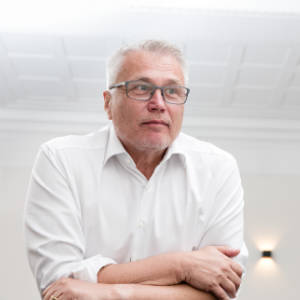
Planning, financing, implementation… How can we promote C2C in municipal construction?
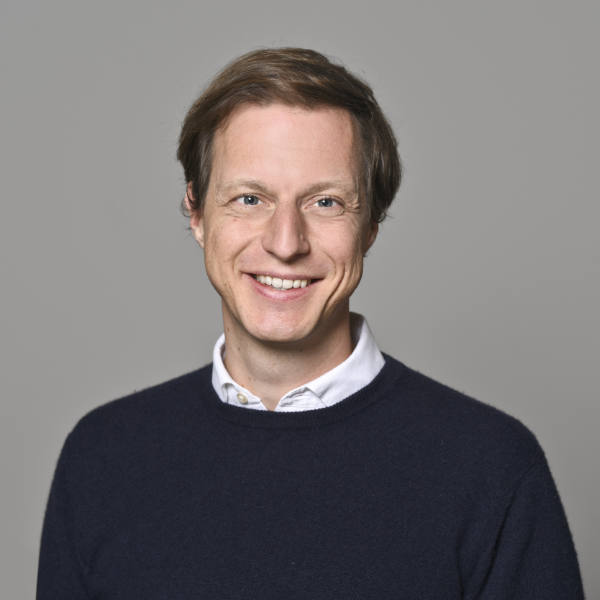

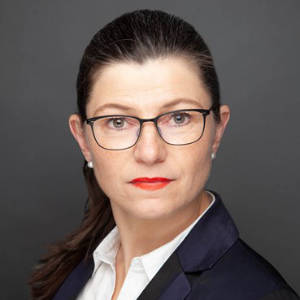

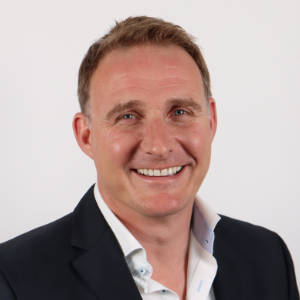




Compostable products for closed cycles: Where to put 630 000 tonnes of cat litter? Sustainable levers in household waste recycling.
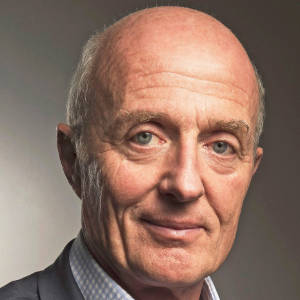

For millions of years, nature’s waste has been rotting on the spot to form humus. Therefore, composting is the oldest and simplest recycling process in the world. Compost has many positive properties: it fertilizes plants, loosens the soil, stores water, increases soil fertility, and promotes soil life. ‘Designed by nature’, it contains all main and micro-nutrients and can thus almost completely cover the supply of nutrients to soil and plants. How can we design even more products so that they can become nutrient-rich humus through disposal in organic waste? And how can health risks be excluded during composting?


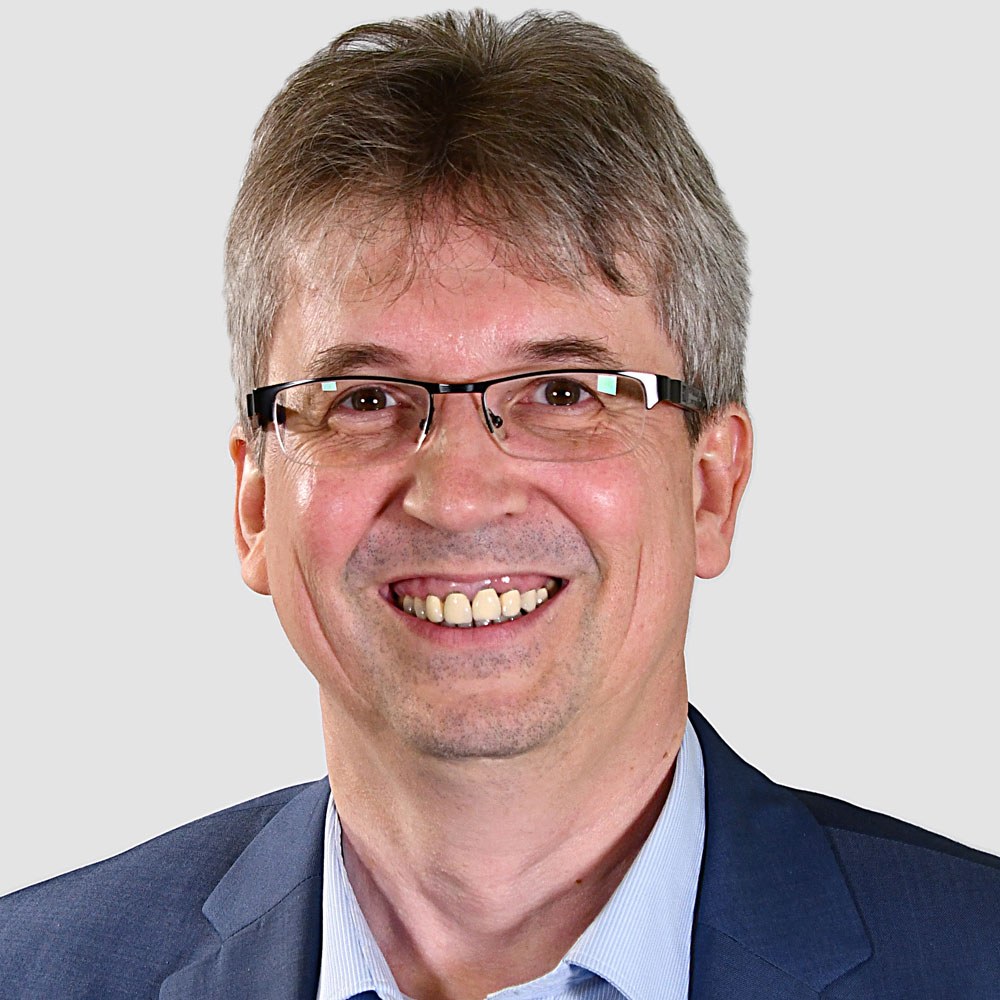

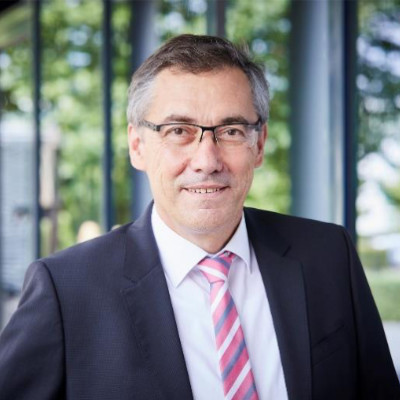

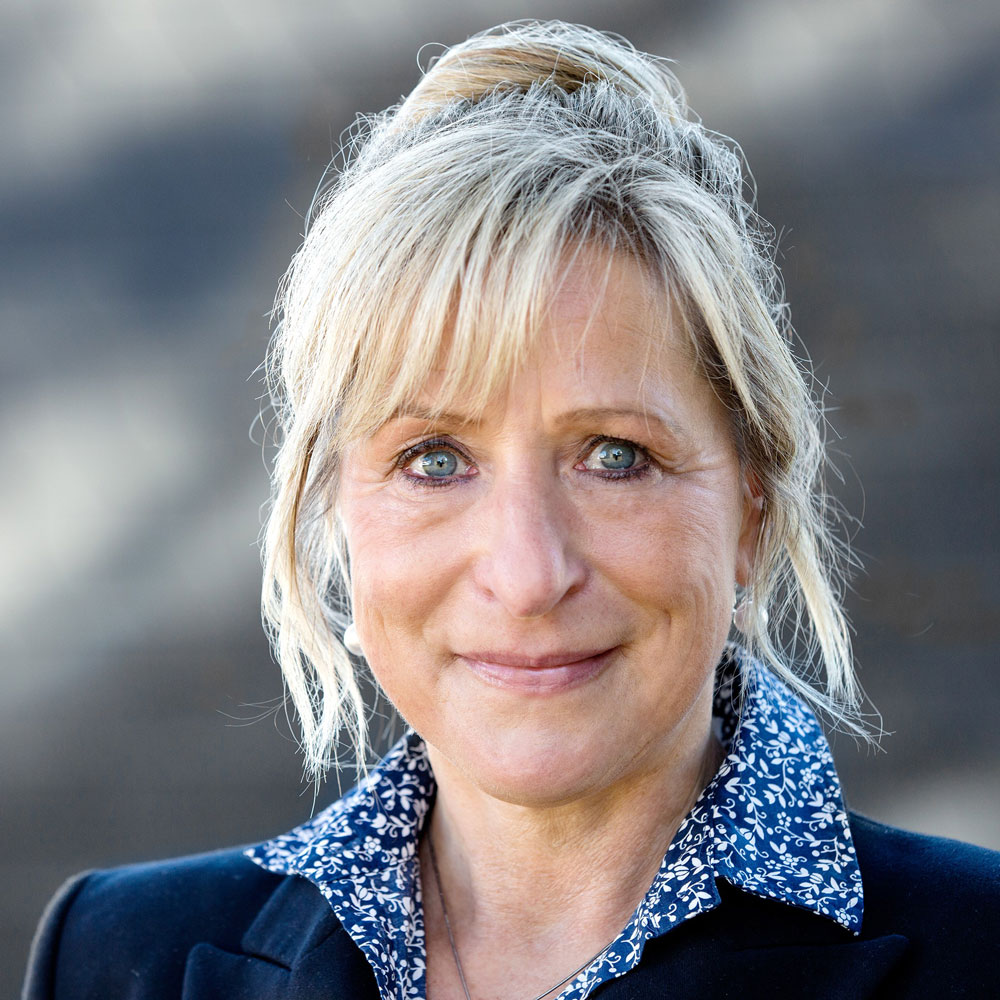

Take a break and enjoy the vegan specialities from Kernvoll.
The Bremen Procurement Office has big plans.
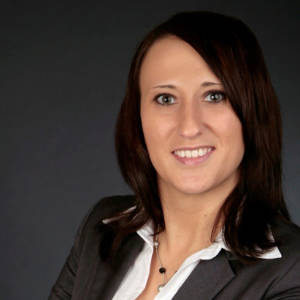

At around €350 billion, public procurement accounts for around 15 % of Germany’s GDP. More than half of this budget is spent at the municipal level for products, services, and construction. This market power is an enormous lever for shaping the entire economy in the sense of Cradle to Cradle. What do municipalities need to be able to exploit this potential? The panel explores this question…
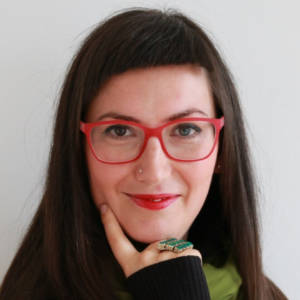



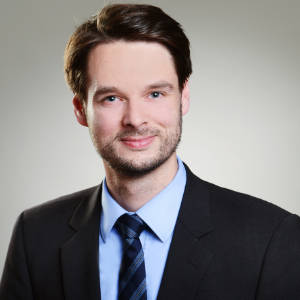

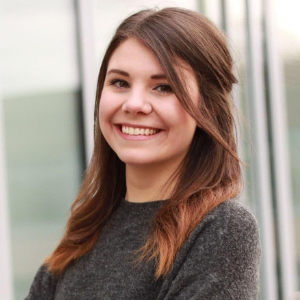
Single circular products and circular business models are not enough for a global circular economy. This is exactly the challenge we are facing today: there are no corresponding reverse logistics for all existing C2C products. At the same time, reverse logistics only makes sense with circular C2C products. We need further development from pure disposal to comprehensive reverse logistics, which aims at the return and fitting distribution of resources. It must enable closed loops in the complex relationship between raw material extraction, the processing and manufacturing industry, logistics, trade, consumers, and the future processing of raw materials.
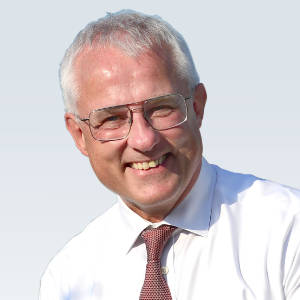
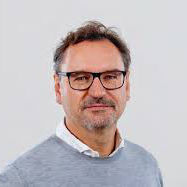
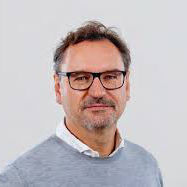
We offer the stage to municipalities, reflecting the day together, and exchange ideas on what next steps we would like to take in the sustainable development of cities and municipalities.
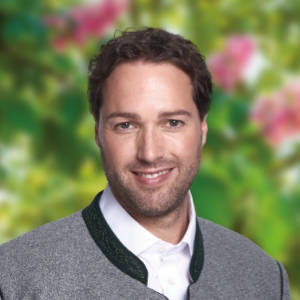



Project Coordinator, Cradle to Cradle Model Region Northeastern Lower Saxony
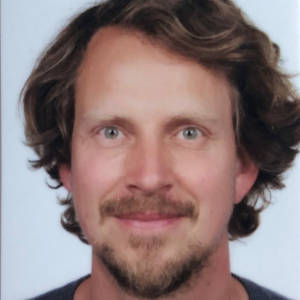

Responsible for engineering & building construction, Hanseatic city of Lueneburg
What a day – we take a lot away from today and move forward together.


Co-Founder and Executive Director of Cradle to Cradle NGO

Co-Founder and Executive Director of Cradle to Cradle NGO
Would you like another snack? Strengthen yourself before you leave and have some last conversations.
Glad you were here & see you next time!

Cradle to Cradle NGO
Head Office
Landsberger Allee 99c
10407 Berlin
Phone: +49 (0) 30 4677 4780
E-Mail: info[at]c2c.ngo
Stay up to date and subscribe to our monthly newsletter.
© CRADLE TO CRADLE NGO 2023
Humans need to rethink and redesign to solve our climate and resource problem in the long run. The C2C design concept is the guide for this. It is modeled after natural cycles in which any waste is a nutrient for something new. Cradle to Cradle takes into account all ecological, economic and social aspects of products as early as the design phase. Only recyclable materials that are suitable for the specific purpose of a product are used.


Svenja Damberg ist seit 2021 Senior Research Fellow am Institut für Technologie- und Innovationsmanagement der TU Hamburg. Sie ist außerdem Projektmitarbeiterin für Technologie- und Innovationsmanagement und Wissenstransfer bei der Cradle to Cradle-Modellregion Nordostniedersachsen. Damberg schrieb ihre Dissertation im Bereich Kundenmanagement bei Genossenschaftsbanken an der TU Hamburg. Zuvor war sie u.a. beim Recruiting-Technologie-Startup RelinkLabs in Kopenhagen im Bereich Marketing und Kommunikation tätig. Sie hat Business and Development Studies an der Copenhagen Business School studiert.
//ENGLISH
Svenja Damberg has been a Senior Research Fellow at the Institute for Technology and Innovation Management at TU Hamburg since 2021. She is also a project associate for technology and innovation management and knowledge transfer at the Cradle to Cradle Model Region Northeast Lower Saxony. Damberg wrote her dissertation in the field of customer management at cooperative banks at the TU Hamburg. Previously, she worked in marketing and communications at the recruiting technology startup RelinkLabs in Copenhagen, among others. She studied Business and Development Studies at Copenhagen Business School.


Christoph Müller arbeitet seit 2015 für die Gebäudewirtschaft der Hansestadt Lüneburg. Dort leitet er aktuell das C2C-inspirierte Probeprojekt „Neubau Hort Anne-Frank-Schule“. Zuvor hat er 9 Jahre als Bauleiter und in der Projektentwicklung gearbeitet. Müller ist gelernter Tischler und Bauingenieur.
//ENGLISH
Christoph Müller has been working for the building management department of the Hanseatic City of Lüneburg since 2015. There, he is currently managing the C2C-inspired trial project „Neubau Hort Anne-Frank-Schule“. Prior to that, he worked for 9 years as a construction manager and in project development. Müller is a trained carpenter and civil engineer.


Andreas Thürmer ist seit 2020 Leiter der Geschäftseinheit Strategie, Organisation und Kommunikation bei der Berliner Stadtreinigung. Er ist seit 2001 bei der BSR und war dort als Leiter des Vorstandsbüro, Prokurist und Leiter der Organisationsentwicklung tätig. Zuvor war Thürmer interner Berater bei Audi. Er ist außerdem Vorstandsvorsitzender der Entsorgergemeinschaft der deutschen Entsorgungswirtschaft e.V. und Mitglied im Umweltausschuss der IHK Berlin. Thürmer ist Diplom-Ingenieur und hat an der Universität Stuttgart Maschinenbau studiert.
//ENGLISH
Andreas Thürmer has been head of the Strategy, Organization and Communication business unit at Berliner Stadtreinigung since 2020. He has been with BSR since 2001, where he served as head of the board office, authorized signatory and head of organizational development. Prior to that, Thürmer was an internal consultant at Audi. He is also chairman of the board of the Entsorgergemeinschaft der deutschen Entsorgungswirtschaft e.V. and a member of the environmental committee of the Berlin Chamber of Industry and Commerce. Thürmer holds a degree in engineering and studied mechanical engineering at the University of Stuttgart.

Peter Kurth ist seit 2008 geschäftsführender Präsident des Bundesverbands der Deutschen Entsorgungs-, Wasser- und Rohstoffwirtschaft. Seit 2020 ist der studierte Jurist zudem Präsident des europäischen Entsorgerverbands FEAD. In seiner beruflichen Laufbahn war Kurth unter anderem für die Deutsche Bank und die Kreditbank als Jurist tätig und war von 2001 bis 2009 Vorstandsmitglied des Berliner Entsorgungsunternehmens Alba. Zuvor begleitete Kurth unterschiedliche politische Ämter. Ab 1994 war er Staatssekretär im Berliner Finanzsenat und ab 1999 Finanzsenator. Er war zudem Aufsichtsrat in unterschiedlichen Kreditunternehmen wie der Bankgesellschaft Berlin sowie der Landesbank Berlin und Abgeordneter des Abgeordnetenhauses Berlin.
//ENGLISH
Peter Kurth has been Executive President of the Federal Association of the German Waste Management, Water and Raw Materials Industry (BDE) since 2008. Since 2020, the law graduate has also been President of the European Waste Management Association FEAD. In his professional career, Kurth has worked as a lawyer for Deutsche Bank and Kreditbank and was a member of the executive board of the Berlin waste management company Alba from 2001 to 2009. Prior to that, Kurth held various political offices. From 1994, he was State Secretary in the Berlin Finance Senate and from 1999 Finance Senator. He was also a member of the supervisory board of various credit companies such as Bankgesellschaft Berlin and Landesbank Berlin, and a member of the Berlin House of Representatives.

Lorena Zangl arbeitet seit 2017 in der hauptamtlichen Geschäftsstelle der C2C NGO. Seit 2020 leitet sie als Referentin den Bereich Kommunale Entwicklung und betreut in dieser Funktion das Netzwerk C2C Regionen. Außerdem ist sie für die Erarbeitung eines Leitfadens für kommunale Beschaffung und C2C verantwortlich. Sie studierte “Political & Social Studies” und “Öffentliches Recht” an der Universität in Würzburg und absolvierte den Master Global Change Management an der Hochschule für nachhaltige Entwicklung in Eberswalde. Zuvor sammelte sie Arbeitserfahrungen im Stiftungsbereich, verschiedenen NGOs für Umwelt und Soziales und Bundespolitik.
//ENGLISH
Lorena Zangl has been working for C2C NGO since 2017. Since 2020, she has been head of the Municipal Development department and, in this capacity, oversees the “C2C Regions Network”. She is also responsible for the development of a guide for municipal procurement and C2C. She studied “Political & Social Studies” and “Public Law” at the University of Würzburg and completed a Master’s degree in Global Change Management at the University for Sustainable Development in Eberswalde. Previously, she gained work experience in the foundation sector, various environmental and social NGOs and federal politics.


Ilse Beneke leitet seit 2016 die Kompetenzstelle für nachhaltige Beschaffung beim Beschaffungsamt des Bundesministeriums des Innern und für Heimat, wo sie sich mit der praktischen Implementierung von Nachhaltigkeitskriterien in öffentlichen Auftragsvergaben befasst. Zuvor war sie Referentin im Ministerium für Umwelt, Gesundheit und Verbraucherschutz des Landes Brandenburg. Beneke ist Volljuristin mit Spezialisierung Umweltrecht und hat 2013 berufsbegleitend ihren Master zum Thema “Responsible Management” abgeschlossen.
//ENGLISH
Ilse Beneke has headed the Competence Center for Sustainable Procurement at the Procurement Office of the Federal Ministry of the Interior and Home Affairs since 2016, where she deals with the practical implementation of sustainability criteria in public procurement. Previously, she was an advisor at the Ministry of the Environment, Health and Consumer Protection of the State of Brandenburg. Beneke is a fully qualified lawyer specializing in environmental law and completed her master’s degree in “Responsible Management” in 2013 while working.


Dagmar Schulz ist seit 2021 erste Landrätin des Landkreises Lüchow-Dannenberg. Sie ist seit 2003 im Landkreis Lüchow-Dannenberg tätig und hat dort unter anderem die Fachbereiche Kultur, Kreisarchiv und Museen, kaufmännisches Gebäudemanagement, Straßenverkehr sowie Jugend-Familie-Bildung geleitet.
//ENGLISH
Dagmar Schulz has been the first female district administrator of the Lüchow-Dannenberg district since 2021. She has worked in the district of Lüchow-Dannenberg since 2003 and has headed the departments of culture, district archives and museums, commercial building management, road traffic and youth-family-education, among others.


Bernhard Reger leitet seit Mai 2021 die Bereiche Marketing und Unternehmenskommunikation der Leipfinger-Bader Ziegelwerke. Zuvor war er in unterschiedlichen Kommunikations- und Marketingagenturen tätig, unter anderem als Mitgründer und Teilhaber der Agentur Synektar und Inhaber und Gründer von reger’s Design- und Kommunikationsagentur. Reger ist gelernter Werbekaufmann und Diplom-Kommunikationswirt.
//ENGLISH
Bernhard Reger has been in charge of marketing and corporate communications at Leipfinger-Bader Ziegelwerke since May 2021. He previously worked in various communications and marketing agencies, including as co-founder and partner of the Synektar agency and owner and founder of reger’s design and communications agency. Reger is a trained advertising merchant and holds a degree in communications.



Vanja Schneider ist seit 2020 Geschäftsführer und Strategieverantwortlicher der Moringa GmbH. Zuletzt war er als Geschäftsführer der Interboden-Gruppe unter anderem für das Projekt The Cradle in Düsseldorf verantwortlich. Schneider ist Bau- und Wirtschaftsingenieur und seit 1991 in der Immobilienwirtschaft, vor allem in der Immobilienentwicklung, tätig.
//ENGLISH
Vanja Schneider has been Managing Director and Head of Strategy at Moringa GmbH since 2020. Most recently, as Managing Director of the Interboden Group, he was responsible, among other things, for The Cradle project in Düsseldorf. Schneider is a civil and industrial engineer and has been working in the real estate industry, primarily in real estate development, since 1991.


Sören Bartol ist seit Dezember 2021 Parlamentarischer Staatssekretär im Bundesministerium für Wohnen, Stadtentwicklung und Bauwesen. Zuvor war er von 2013 bis 2021 stellvertretender Vorsitzender der SPD-Bundestagsfraktion. Seit 2002 ist Bartol direkt gewähltes MdB für den Wahlkreis Marburg-Biedenkopf. Er ist seit vielen Jahren für die Themen Bau, Wohnen und Stadtentwicklung zuständig, u.a. als Arbeitsgruppensprecher im Bundestag. Bartol ist Diplom-Politologe.
ENGLISH
Sören Bartol has been Parliamentary State Secretary at the Federal Ministry for Housing, Urban Development and Building since December 2021. He was previously deputy chairman of the SPD parliamentary group from 2013 to 2021. Since 2002, Bartol has been a directly elected Member of Parliament for the constituency of Marburg-Biedenkopf. He has been responsible for the topics of construction, housing and urban development for many years, including as a working group spokesman in the Bundestag. Bartol holds a degree in political science.


Dr. Hans Georg Brendle ist seit 1997 Research & Development Manager bei der J. Rettenmaier & Söhne GmbH+Co KG, zu der unter anderem JRS Petcare gehört. Er ist Diplom-Chemiker und hat an der Eberhard Karls Universität Tübingen promoviert. Er beschäftigt sich unter anderem mit der mechanischen und chemischen Verarbeitung von pflanzlichen Zellstoffen für Anwendungen in Pharma, Lebensmitteln und Technik.
ENGLISH
Dr. Hans Georg Brendle has been Research & Development Manager at J. Rettenmaier & Söhne GmbH+Co KG, which includes JRS Petcare, since 1997. He holds a degree in chemistry and a doctorate from Eberhard Karls University in Tübingen. Among other things, he is involved in mechanical and chemical processing of cellulosic plant material for pharmaceutical, food and technical applications.


Thomas Bader ist Gründer und Geschäftsführer der Leipfinger-Bader GmbH sowie Gründer & Geschäftsführender Gesellschafter der Bader Media GmbH. Darüber hinaus hält Bader diverse Aufsichtsrats- und Vorstandspositionen inne, beispielsweise beim Bundesverband der Deutschen Ziegelindustrie e.V. Er ist Diplom-Ingenieur und Diplom-Kaufmann.
//ENGLISH
Thomas Bader is founder and managing director of Leipfinger-Bader GmbH as well as a founder & managing partner of Bader Media GmbH. In addition, Bader holds various supervisory board and executive board positions, for example at the Bundesverband der Deutschen Ziegelindustrie e.V. He holds a degree in engineering and a degree in business administration.


Aloys Oechtering ist seit 1989 Bereichsleiter im Unternehmensbereich organische Abfälle, Biomasse und Bioenergie der Unternehmensgruppe Remondis. Er ist außerdem Geschäftsführer verschiedener Spezialgesellschaften für organische Abfälle, wie Remondis SmartRec, und Aufsichtsratsmitglied verschiedener Beteiligungsgesellschaften mit kommunalen Partnern. Oechtering ist in diversen Verbänden, wie beispielsweise dem Entsorgerverband BDE tätig. Er studierte Agrarwissenschaften an der TU München und der Universität Göttingen.
ENGLISH
Aloys Oechtering has been head of the organic waste, biomass and bioenergy division of Remondis Group since 1989. He is also managing director of various specialist companies for organic waste, for example Remondis SmartRec, and a member of the supervisory boards of various associated companies with municipal partners. Oechtering is active in associations such as the BDE. He studied agricultural sciences at the Technical University of Munich and the University of Göttingen.


Manuel Ehlers ist seit 2016 Head of Sustainable Property der Triodos Bank. Seit 2021 ist Ehlers außerdem Mitglied im Immobilienbeirat der DGNB. Zuvor war er als Projektentwickler viele Jahre mit der Konzeption und Realisierung von Immobilienprojekten in Berlin betraut. Er ist gelernter Wirtschaftsingenieur mit einer Spezialisierung auf nachhaltiges Bauen.
ENGLISH
Manuel Ehlers has been Head of Sustainable Property at Triodos Bank since 2016. Since 2021, Ehlers has also been a member of the DGNB’s Real Estate Advisory Board. Previously, he worked for many years as a project developer and was in charge of the conception and realization of real estate projects in Berlin. He is a trained industrial engineer specialized in sustainable construction.


André Siedenberg ist seit 2014 bei der Kommunal Agentur NRW GmbH in Düsseldorf als Berater für kommunale Beschaffung tätig. Seit 2015 ist er außerdem als Rechtsanwalt zugelassen. Er vertritt öffentliche Auftraggeber in Nachprüfungsverfahren, hält Seminare zum Vergaberecht und unterstützt Nichtregierungsorganisationen in allen Fragen der nachhaltigen Beschaffung. Zuvor war er im Ministerium für Wirtschaft, Energie, Industrie, Mittelstand und Handwerk des Landes Nordrhein-Westfalen im Referat für Vergaberecht tätig. Siedenberg studierte Rechtswissenschaften und Europäisches Recht an der Julius-Maximilians-Universität Würzburg.
ENGLISH
André Siedenberg has been working as a consultant for municipal procurement at Kommunal Agentur NRW GmbH in Düsseldorf since 2014. He has also been admitted to the bar in 2015. In this capacity, he represents public contracting authorities in review proceedings, holds seminars on public procurement law, and supports NGOs in all matters of sustainable procurement. Previously, he worked at the Ministry for Economic Affairs, Energy, Industry, SMEs and Trade of the State of North Rhine-Westphalia in the department for public procurement law. Siedenberg studied law and European law at the Julius Maximilian University of Würzburg.


Natalie Rottmann-Boos ist seit 2020 als Projektmanagerin in der Kompetenzstelle für sozial verantwortliche Beschaffung bei Immobilien Bremen tätig. Dort unterstützt sie den kommunalen Einkauf bei Ausschreibungen und bringt eine sozial-ökologische und zirkuläre Beschaffung voran, beispielsweise mit dem Projekt „SDG 12: Fair handeln und beschaffen `Made in Bremen´“. Zuvor war Rottmann-Boos zehn Jahre lang als Projektmanagerin im Offshore-Windkraftbereich tätig.
ENGLISH
Natalie Rottmann-Boos has been working as a project manager in the competence center for socially responsible procurement at Immobilien Bremen since 2020. She supports the purchasing department in tenders and promotes social-ecological and circular procurement, for example with the project “SDG 12: Fair trade and procurement `Made in Bremen´”. Before that, Rottmann-Boos worked as a project manager in the offshore wind power sector for ten years.


Sybille Mai ist Leading Consultant und Standortverantwortliche in Berlin für die EPEA GmbH, mit Schwerpunkt Cradle to Cradle im Bau. Zwischen 2008 und 2015 baute sie bei Drees & Sommer in Berlin die Beratungskompetenzen zur Nachhaltigkeit auf und begleitete als DGNB-Auditorin und LEED-AP eine Vielzahl von Green-Building-Zertifizierungen. Weitere Stationen führten die Diplom-Wirtschaftsingenieurin als Abteilungsleiterin für Immobilienmanagement und Geländeentwicklung zur Messe Berlin sowie in die verantwortliche Projektsteuerung.
ENGLISH
Sybille Mai is Leading Consultant and Site Manager for EPEA GmbHs Berlin office, with a focus on Cradle to Cradle in construction. Between 2008 and 2015, she built up sustainability consulting expertise at Drees & Sommer in Berlin and, as a DGNB auditor and LEED-AP, accompanied a large number of Green Building certifications. Further positions led her to Messe Berlin as head of department for real estate management and site development as well as into responsible project management. Mai holds a diploma degree in industrial engineering.


Nora Sophie Griefahn ist Co-Gründerin und geschäftsführende Vorständin von Cradle to Cradle NGO. Die Umweltwissenschaftlerin koordiniert die politische und wissenschaftliche Arbeit der 2012 gegründeten gemeinnützigen Organisation und treibt ein Umdenken in Wissenschaft, Politik, Bildung und Gesellschaft voran, das mehr als nur Klimaneutralität zum Ziel hat. Sie ist als Expertin für Cradle to Cradle und eine klimapositive Zukunft gefragt und spricht darüber auf Veranstaltungen sowie als Gastkommentatorin oder Gesprächspartnerin in Printmedien und digitalen Formaten. Darüber hinaus lehrt Griefahn an verschiedenen deutschen Hochschulen.
// ENGLISH
Nora Sophie Griefahn is executive managing director and co-founder of Cradle to Cradle NGO. She majored in Environmental Sciences at Leuphana University Lüneburg and Goethe University Frankfurt with stays at University of Natural Resources and Life Sciences in Vienna and University of Copenhagen. As the only German, she was elected as a GreenBiz’ 30 Under 30 inspiring young leader in 2018.
In 2012, she co-founded Cradle to Cradle NGO (C2C NGO) with Tim Janssen in order to establish Cradle to Cradle principles in economy and politics. C2C NGO connects the fields of business, education, politics, and civil society by creating networking platforms and educational formats.
As co-executive director, Nora coordinates the NGOs scientific, political and educational work and actively shapes a new understanding of material health and circularity. Nora is a sought-after expert, speaker and panelist on Circular Economy and Cradle to Cradle with a broad expertise in chemical construction, healthy product design, and the coherences between climate change and resource scarcity. Furthermore, she is a member of various scientific advisory councils and a lecturer at the Technical University of Berlin.


Tim Janßen ist geschäftsführenden Vorstand und Mitbegründer der gemeinnützigen Cradle to Cradle NGO. Er studierte Wirtschaftswissenschaften an der Leuphana Universität Lüneburg und der Dualen Hochschule Baden-Württemberg. Dabei lag sein Fokus auf Gründung, Innovationsmanagement und verantwortungsvollem Wirtschaften. Auslandsaufenthalte führten ihn an das Athlone Institute of Technology in Irland, sowie die Universität Wien im Rahmen eines PROMOS- Stipendiums des DAAD.
Aus der Idee heraus, die Cradle to Cradle Denkschule und das Designkonzept in die Mitte der Gesellschaft zu tragen, gründete Tim Janßen 2012 C2C NGO mit und leitet diese seither als Co-Geschäftsführer. Dabei entwickelt er Strategien, um eine maximale Wirkung der Organisation auf die Gesellschaft zu erreichen, und gestaltet aktiv das Wachstum der noch jungen, stetig größer werdenden Bewegung.
Tim Janßen hält als Redner zahlreiche Fachvorträge auf nationalen und internationalen Konferenzen und Fachtagungen und gibt sein Wissen um Cradle to Cradle an Fachpublikum und Interessierte weiter. Des Weiteren lehrt er als Hochschuldozent an der Dualen Hochschule Baden-Württemberg (DHBW), Leuphana Universität Lüneburg, HS Mittweida sowie der TU Berlin.
// ENGLISH
Tim Janßen is executive director and co-founder of Cradle to Cradle NGO. He majored in Business, Entrepreneurship, Innovation and Leadership at Leuphana University Lüneburg and Duale Hochschule Baden-Württemberg (DHBW). In 2012, he co-founded Cradle to Cradle NGO (C2C NGO) with Nora Sophie Griefahn. C2C NGO connects the fields of business, education, politics, and civil society by creating networking platforms and educational formats. In 2019, the NGO established the C2C LAB in Berlin: the world’s first renovation in an existing building based on Cradle to Cradle criteria. Serving as an educational center, NGO head office, and real-world laboratory, it is here where the C2C school of thought and design concept become reality. As co-executive director, Tim develops strategies to maximize the organization’s impact on society and actively shapes the growth of this young, ever-growing movement. He is a sought-after expert for Cradle to Cradle, Circular Economy and Social Entrepreneurship. He regularly holds keynotes and partakes as panelist at national and international conferences. Furthermore, Tim is a lecturer at DHBW, Leuphana University Lüneburg and TU Berlin.


Andreas Bukowski ist seit 2020 Erster Bürgermeister der Gemeinde Haar. Seit 2019 ist er außerdem Vorsitzender des CSU Ortsverbands Haar und des Gewerbeverbands Haar Trudering. Zuvor war er zehn Jahre lang als Leiter Marketing & Vertrieb und als Geschäftsführer der Styx Naturcosmetics GmbH tätig. Bukowski ist promovierter Dr. Phil. und hatte zwischen 2009 und 2013 einen Lehrauftrag an der Ludwig-Maximilians-Universität München.
ENGLISH
Andreas Bukowski has been First Mayor of the Bavarian municipality of Haar since 2020. Since 2019, he has also been Chairman of the local branch of the Christian Social Union party in Haar and the Haar Trudering trade association. He previously was Head of Marketing & Sales and Managing Director of Styx Naturcosmetics GmbH for ten years. Mr. Bukowski holds a PhD and was a lecturer at Ludwig Maximilian University in Munich between 2009 and 2013.


Michael Behnke ist seit 2004 General Manager der Markenagentur Belly Button Paris. Seit 2021 vertritt er außerdem ehrenamtlich die Plant Litter Association (PLA) in Deutschland und Frankreich, die sich europaweit dafür einsetzt, Verbraucher*innen und Regierungsorgane auf das Umweltproblem mineralischer Katzenstreu aufmerksam zu machen. 2018 initiierte Behnke eine vergleichende Life-Cycle-Assessment-Studie verschiedener Arten von Katzenstreu, die erstmals das Umweltproblem Mineralstreu wissenschaftlich untersuchte. Er unterrichtet außerdem seit 2014 an der American University of Paris. Zuvor war er unter anderem für die Publicis Group, Young & Rubicam und TBWA Paris tätig.
ENGLISH
Michael Behnke has been the General Manager of branding and brand communication agency Belly Button Paris since 2004. Since 2021, he is the honorary representative of the Plant Litter Association (PLA) in Germany and France. The association works across Europe, raising awareness among consumers and governmental bodies about the environmental problem of mineral cat litter. In 2018, Behnke initiated a comparative life-cycle assessment study of different types of cat litter, the first to scientifically examine the environmental problem of mineral litter. He also has been a lecturer at the American University of Paris since 2014. Previously, he worked for the Publicis Group, Young & Rubicam and TBWA Paris, among others.



Biografie Text Bei der Cradle to Cradle Certified™-Zertifizierung, die das gemeinnützige Products Innovation Institute (C2CPII) vornimmt, werden verschiedene Faktoren und Ebenen der Herstellung, Nutzung und der Wiederverwertung bewertet. Es gibt fünf Abstufungen in der Zertifizierung von Basic über Bronze, Silber, Gold bis hin zu Platin, welches den höchsten Produktstandard kennzeichnet. Dabei werden die fünf Faktoren Materialgesundheit, Wiederverwendbarkeit, Nutzung erneuerbarer Energien und Kohlenstoffmanagement, Wasserqualität sowie Sozialstandards betrachtet. Weltweit gibt es aktuell knapp 300 C2C-Unternehmen mit über 8.000 C2C-Produkten.